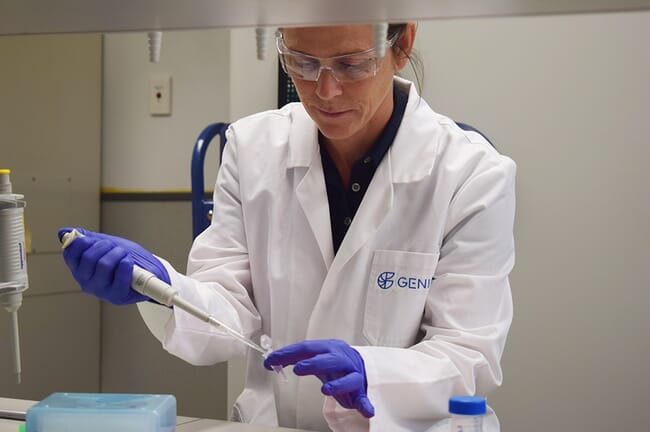
Commencing in 2019, Australia’s Commonwealth Scientific and Industrial Research Organisation (CSIRO) collaborated with the country’s shrimp industry stakeholders on a comprehensive study of WSSV testing methods. The newly published study report - Evaluation of point of care (POC) tests for White Spot Syndrome Virus (WSSV) - compares commercially available tests designed to detect WSSV on commercial shrimp farms with laboratory-run PCR tests.
“At the time of the study, point of care tests had become a go-to method of disease detection for farmers, a situation that persists to this day. But, with the release of CSIRO’s findings, it’s time for an urgent reassessment of testing practices,” said Dr Melony Sellars, shrimp disease expert and CEO of Genics, in response to the new findings.
“The CSIRO’s research compares and assesses five WSSV tests, comprising three rapid antigen-style tests and two PCR-based tests. The study clearly shows that the assessed POC test kits yield inferior limits of detection (also known as sensitivity) when compared with PCR laboratory testing,” she added.
Among the problems with POC kits, CSIRO emphasises the gap between user expectations and actual test kit sensitivity in the field.
“The lack of sensitivity of these POC testing systems is such that it actually creates a false sense of security for farmers. The CSIRO study’s findings are crucially significant for the global industry because the current expectation among farmers is that POC tests can detect WSSV in the early stages of infection, providing early warning of disease. However, CSIRO’s study identifies vital issues with the evaluated POC testing kits, which means that they are not, in fact, a solution for WSSV early warning and prevention," argued Dr Sellars.
The need for a strategic change
“For farmers, the conclusion to be drawn from CSIRO’s research is emphatically clear: to avoid destructive outbreaks of WSSV, the shrimp industry urgently needs to pivot toward using lab-based PCR tests for routine testing instead of relying on POC kits and testing systems. Notably, such lab-based PCR tests must also be properly validated by the laboratory personnel, with all assays varying in performance based on equipment, chemistry, people, and operating conditions,” Dr Sellars concluded.



